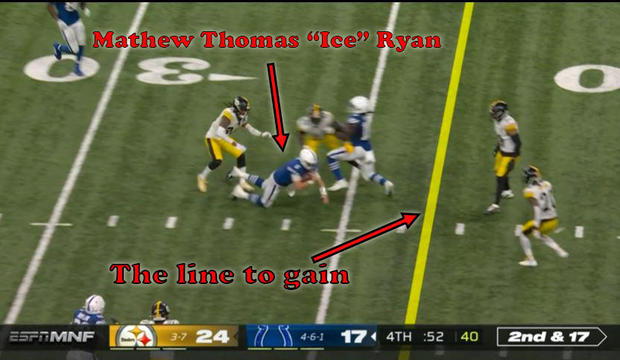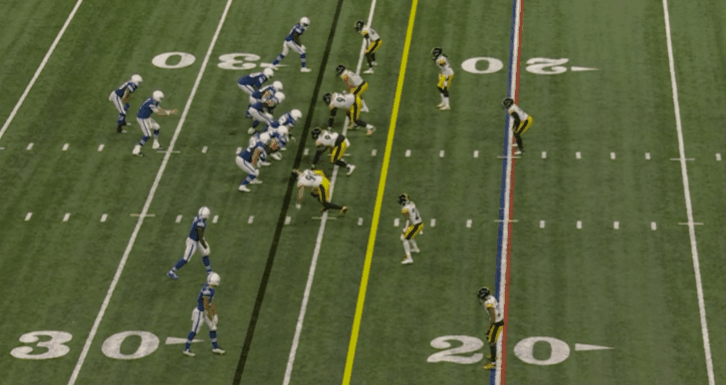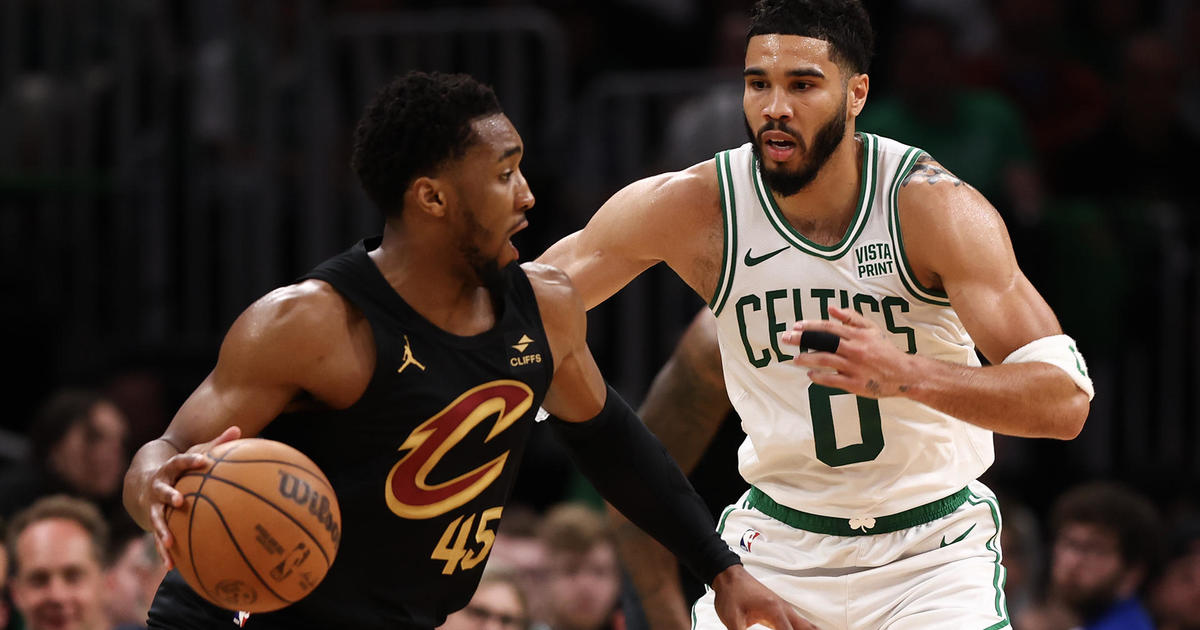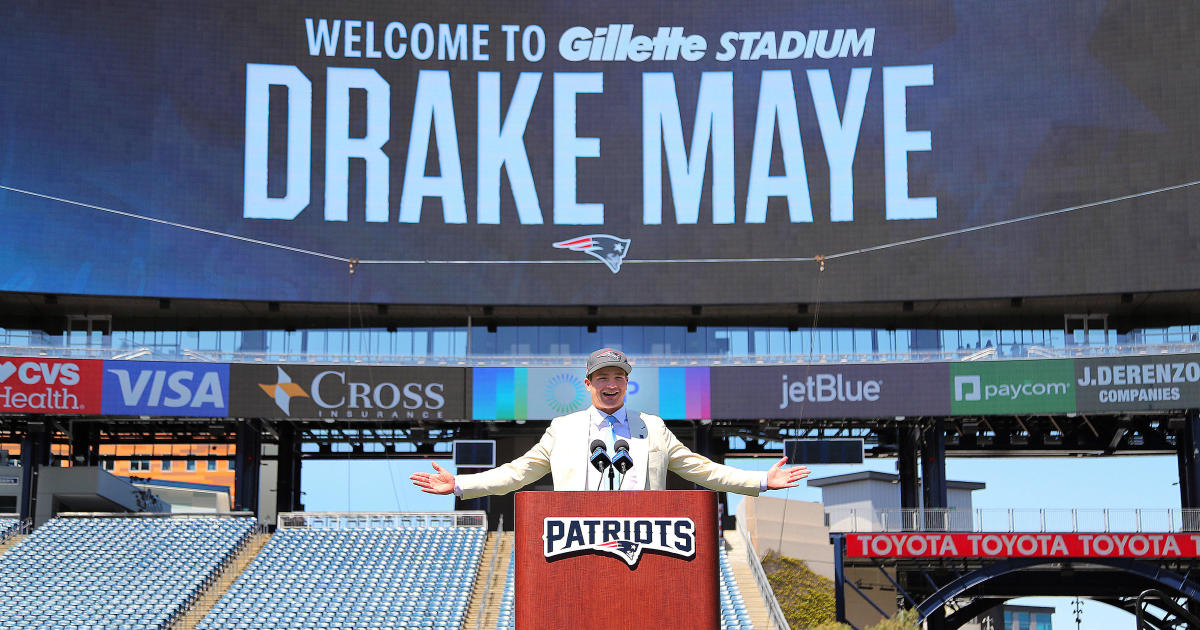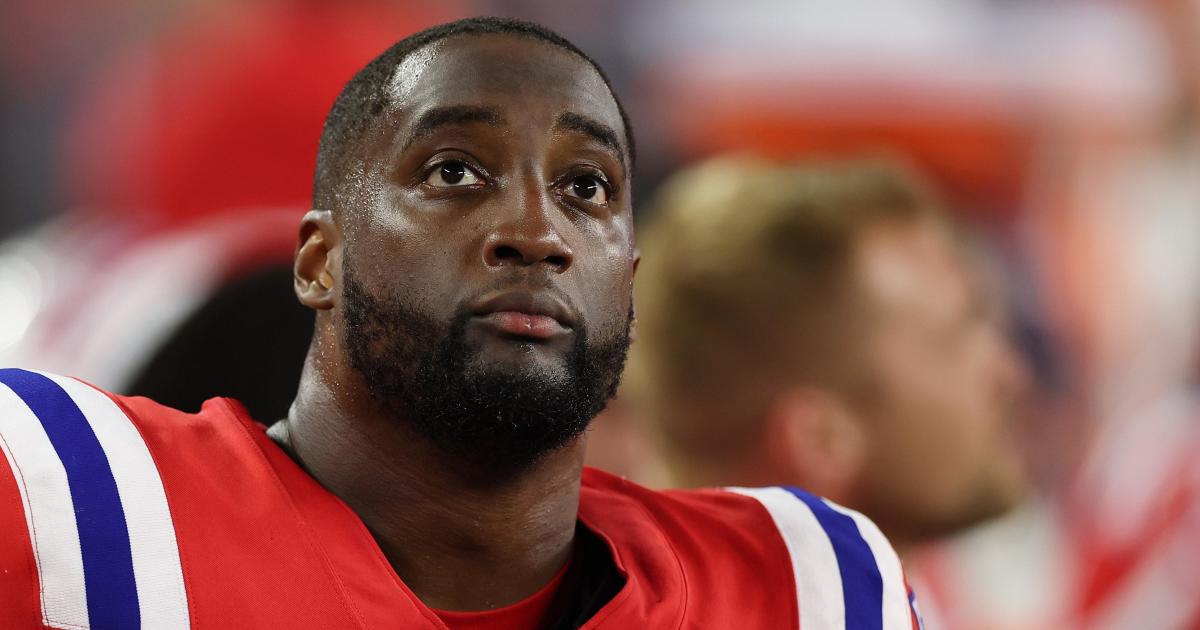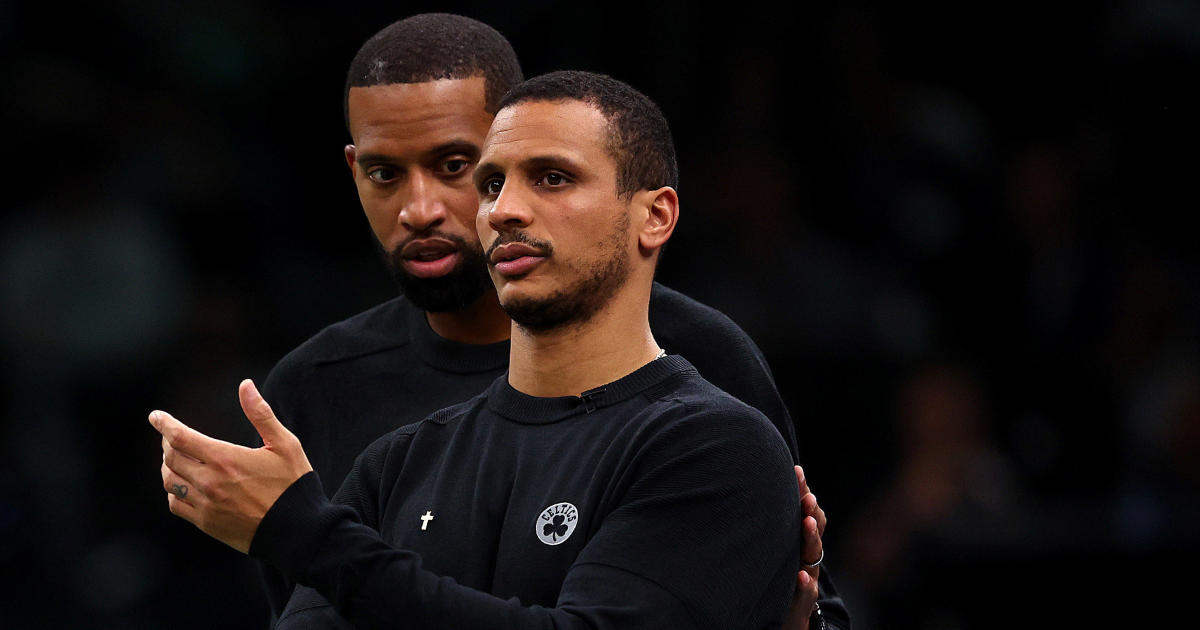Hurley: Jeff Saturday, Todd Bowles put on master class of clownish clock management
BOSTON -- On the whole, football is an extremely complex sport. But not everything about the sport is complicated.
Still, week in and week out, head coaches manage to bungle the most basic facets of the game, often to disastrous ends.
Week 12 brought us a couple of instances of high-level goofery in the realm of clock management from two head coaches -- one with almost 80 games of head coaching experience plus 18 more years of working on an NFL sideline, and one with absolutely no coaching experience whatsoever.
The latter was, of course, Jeff Saturday, who did such a magnificent job coaching his son's high school team that Colts owner Jim Irsay just had to hire him to replace the fired Frank Reich a few weeks ago. When the Colts won Saturday's first game as head coach, some victory laps were taken by those who felt the backlash to such an out-of-left-field hire was over the top. Now, though, there won't be much gloating at ESPN headquarters for the success of their friend.
Not after Monday Night Football, when Saturday fundamentally failed to understand the basics of not just clock management but management of the offense during the Colts' failed bid to score the game-tying (or winning) touchdown in the final minutes against the Steelers.
The mismanagement began when Matt Ryan connected with Michael Pittman for a 3-yard gain on third-and-6. Pittman was tackled with 2:17 left on the clock. The Colts should have called timeout immediately. For one, they were facing a fourth-and-3, so getting a play right was rather important. Secondarily, if they failed on that fourth-and-3, the two-minute warning would work as an extra timeout to help them get the ball back with more time after stopping the Steelers on the ensuing drive.
Instead, Saturday let the clock tick down to the 2-minute warning, wasting 17 seconds. Still, the Colts were able to use that time to get their fourth down play call locked in, so it wasn't overly egregious.
From there, though, things got ugly.
The Colts converted that fourth-and-3 with a pass to Pittman for four yards -- a play where T.J. Watt tipped the pass but Pittman came up with the reception anyway. Pittman was tackled with 1:55 on the clock. The Colts didn't call timeout. Instead, they let 20 seconds tick off the clock, with the next snap coming at 1:35.
Obviously, they were slow-playing things, so as not to leave any time on the clock for Pittsburgh to mount a response drive. But this was pushing it.
On the next snap, Ryan was strip-sacked by Alex Highsmith. Colts lineman Will Fries recovered the loose ball with 1:31 on the clock. And the Colts. Did not. Call. A. Timeout.
Instead, more than 30 more seconds ticked off the clock before the Colts scrambled to run a play on second-and-17. On that play, Ryan took off running before giving himself up well short of the line to gain, thus setting up a critical third-and-short. Ryan hit the deck with 51 seconds left on the clock.
And Saturday. Didn't. Call. Timeout.
Instead, 18 more seconds ticked away before Ryan took the next snap and handed to Jonathan Taylor, who was stuffed for no gain.
Finally, the Colts called their first timeout, but it didn't help much, as Ryan threw incomplete on fourth down to essentially end the game.
After the 24-17 loss, Saturday was asked if he considered calling timeout after the Ryan scramble.
"I thought we had plenty of time. I wasn't really concerned. We still had timeouts. I wasn't too concerned," Saturday said. "I really wanted -- you know, when he was going down, I couldn't tell where they were gonna start him from going down, right? Like if he was gonna get the first down."
This was the play where Saturday wasn't sure if Ryan had picked up a first down:
Yikes.
Saturday did admit that it took a little too long for the Colts to run their play, but he also said it wasn't that big of a deal.
"And then we got there, I expected us to get on the ball and have another play a little bit quicker than that," Saturday said. "But again, this wasn't a press for time. We just didn't make enough plays."
A reporter who had missed the start of the press conference asked the same question about Saturday not calling a timeout after the Ryan scramble. This time, Saturday gave an even more detailed answer.
"Yeah, I didn't feel like time was really of the essence at the moment," Saturday said. "I thought we had a good play, and I felt like we would get to it. Obviously we didn't do great on the backside so it's worse than it, you know. But I felt good about the call before, felt like we had time, we would have timeouts afterwards, we were in striking distance, so yeah, I never felt like the pressure of needing a timeout. I thought the call was good. We had, again, we were in that mode pretty much the whole second half, so it was pretty consistent with what we were doing. So again, it wasn't like a change for us. We just didn't execute it."
The play that the Colts failed to execute looked like this:
What Saturday failed to acknowledge is that rushing to the line after a quarterback scramble in the final minute of a game generally leads to some sloppy football. Perhaps a timeout, with the former All-Pro/Pro Bowl/Super Bowl champion offensive lineman giving some detailed pointers to his O-line, might have increased the chances of that play being a success. Perhaps.
Saturday was also asked if he had any regret about not calling a timeout, as doing so could have allowed Parks Frazier -- the inexperienced offensive play-caller -- some time to dial up a play that he really liked in a gotta-have-it third-and-3 situation.
Saturday -- despite previously saying he wasn't sure if Ryan had picked up the first down on the QB scramble -- said that the Colts actually had the exact play they wanted to run dialed up and ready to go.
"We already had it. We had it as the play was happening. Again, that was kind of the mode we were in the whole second half. So we already had it in the head. We were going actually to the next play. So as soon as [Ryan] got tackled, we knew what we were going," Saturday said. "And again, I mean, would I have liked him to snap it a little bit earlier? Sure. But again, never felt pressed for time, never felt like we wanted to get to something different. Like I said, we had made that same play a couple of times and done well with it, and unfortunately it just didn't work out."
That certainly was unfortunate. What was fortunate for Saturday is that he wasn't the only head coach to offer some befuddling explanations for timeout management on Monday.
Earlier in the day, Buccaneers head coach Todd Bowles doubled down on his own lack of timeout usage from Sunday by offering up maybe the wildest explanation possible.
For a quick refresher: The Bucs led the Browns 17-10 late in the fourth quarter on Sunday. With the Browns threatening to score the game-tying touchdown, the Buccaneers didn't call timeout after a first-down Cleveland run, thus taking 30 seconds off the clock. The Bucs again did not call timeout after a third-down completion for a loss of one yard, thus draining 33 more seconds off the clock. Then, after the Browns tied the game, the Bucs ... ran a screen. It gained one yard. The Bucs did not use one of their three timeouts, instead draining 12 more seconds off the clock. Brady took the next snap with 14 seconds remaining in regulation and of course connected with Julio Jones for 26 yards. But with only 8 seconds remaining, the Bucs ran out of time to get into position for the game-winning field goal.
Bowles defended his decision-making after the loss by saying, "No, that clock was gonna run down. We didn't have enough to stop it right there. So it was overtime right there, right off the top."
That was ... wrong. But a day later, Bowles somehow made his reasoning sound even worse.
A reporter asked Bowles why he didn't call timeout after the screen pass, as doing so would have given the Bucs almost 20 extra seconds to try to get into field-goal range.
"Or it could have been an interception, as well," Bowles responded. "We said if we didn't get yards on the first down on the first play, we wouldn't call timeout. We'd have probably let the clock run, and if he saw something, he could throw it. But we didn't get any yards on the first play, we got one or two yards with Rachaad [White], and we were backed up. So, if we would've thrown a pick, then the ball would've went the other way, and they'd have kicked the game-winning field goal. We felt better going into overtime. So I didn't do it."
Simply put, that's a response that a head coach might give if his quarterback is Zach Wilson, or Sam Darnold, or Carson Wentz, or a rookie, or ANY QUARTERBACK ON EARTH WHO IS NOT NAMED TOM BRADY.
Tom Brady's entire career was built on his ability to lead game-winning drives in the final minutes of football games. A certain contest in February of 2002 rings a bell as the birth of that legend, and roughly two decades of evidence exists showing that Brady is actually quite good at not throwing interceptions in game-winning drives. In fact, he's been pretty successful at finishing off those game-winning drives, as he has 55 of them in his career. That's more than ... anyone else. Ever.
Bowles must have forgotten that Brady won a game for him under similar circumstances just three weeks ago against the Rams, when Brady completed 17 of 23 passes for 145 yards and a touchdown to turn a 13-6 fourth-quarter deficit into a 16-13 Buccaneers victory. Brady led that game-winning drive in just 35 seconds, with no timeouts, gaining 60 yards in a flash.
Then again, Bowles also watched last year as Brady led another remarkable comeback against the Rams in the postseason, seeing Brady and the Bucs' offense turn a 27-3 deficit into a 27-27 tie with 42 seconds left in the game. Bowles then left safety Antoine Winfield Jr. all alone against Cooper Kupp while sending a blitz at Matthew Stafford.
In a shocking twist, this strategy backfired, and Stafford hit Kupp for 44 yards, setting up the game-winning -- and for the Bucs, season-ending -- field goal. The Rams went on to win the Super Bowl. The Bucs went home. Bowles became the head coach.
In that game, Bowles didn't seem to consider that a decent quarterback could make a play with a great receiver to win a game. In the game this week, Bowles didn't seem to consider that a great quarterback could make a play to win a game.
But, hey, Bowles is right. Brady could have thrown an interception, and that could have led to a Browns victory. Fortunately for Bowles, the Browns didn't get that victory until overtime, which was obviously a more preferable result.
Again, football is hard. Complicated. Confusing. But NFL head coaches sometimes do love to make it more difficult than it has to be.
UPDATE: Saturday admitted his fault on Tuesday. Credit to him. Bowles could learn a thing or two from the rookie coach.
